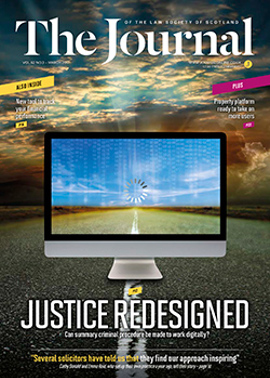Understanding the other side's position
An assistant mediator’s story:
“My experience, as an assistant mediator in an actual mediation, was remarkably similar to Core’s flagship training course. So much so that, at one point in the morning, I remarked to our mediator, ‘My goodness, this is just exactly like the course; how do you manage to make the course so similar to the real thing?’ The sense of the dispute opening out and then narrowing again felt the same, as did the way parties engaged with the process (and with advisers).
“During the course, we discussed many times how it’s not in the black and white that the real substance lies. Instead it’s in the shades of grey or ‘in the margins’. So in the margins here, as often, there was an untold story. A story which had grown uncontrolled in the letters and papers.
“The first joint meeting felt like a release of pressure, a chance to hear the back story in a human and informal setting. For me, it felt like humanity had been rediscovered, away from the black and white words which had defined relationships for so long. From this came the breakthrough words: ‘I have gained quite an understanding of your position.’ Again, I expressed the thought that this was so like the course, from reality-testing parties’ respective positions, to discussing and drilling down into best alternatives to negotiated settlements. And the case studies during the course always had that ‘human’ dimension to them.
“I remember one of the simulations with a particularly angry party and being advised to ‘Step into that anger and not away from it. Acknowledge it and give it its place.’ I discovered that this is the value of mediation in real life too.”
A professional party’s story:
“Mediation was an eye-opener for me in that it exposed the friction which the adversarial pre-court correspondence and subsequent court procedure can create in a dispute. If the benefits for each party in settling that dispute can be drawn out and used to build the foundation of a settlement, that would seem more likely to create an environment in which a settlement is likely to be achieved, in contrast with an exchange of correspondence which itself often has the effect, whether intended or not, of winding up the recipient. Over a long period, the cumulative effect of such correspondence will almost inevitably result in one or more of the parties being well wound up by the time the court hearing is reached.
“There is no doubt that written communication cannot convey the same nuances as the spoken word, and that face-to-face meetings offer the opportunity to assess the true position of the other party, and, perhaps as importantly, to explain to each other how and why they have arrived at their position in the dispute. In my case, it was very helpful for me to understand the additional factors explained by the other party which I had not until then appreciated had greatly contributed to the creation of the problem on their side. Until that point, I had been proceeding on the basis of the root of the problem being decades of defective work by their predecessors and advisers. For me, understanding the reality was a significant factor.
“In particular, it allowed me to see that the other party was not the devil incarnate which had been formed in my mind’s eye as a result of the terms of the prior correspondence through the solicitors. Rather, I could see in the other party someone who, like me, had been landed with a very thorny problem through factors which had not been reasonably foreseeable when the original agreement had been entered into many years previously.
“I don’t believe that a meeting simply involving solicitors rather than a mediator would have been likely to have had the same success.”
In this issue
- Ineligibility – an open and shut case?
- Rent deposits – filling in the gaps
- EU at the crossroads
- Brexit: the human rights dimension
- Reading for pleasure
- Opinion: Andrew Lothian
- Book reviews
- Profile
- President's column
- Digital consultation closes
- People on the move
- Clear sky over summary courts
- Defence submissions
- Bookmark the benchmark
- GDPR: Practical steps for Scottish law firms to prepare
- Heads for business
- Spousal visas and the income rule
- Compete or get beat
- Platform party
- The consequences of excluding consequential loss
- Understanding the other side's position
- Family complexities
- Unitary patent: sunrise or sunset for UK holders?
- Third option
- Land reform, step by step
- Member against member?
- Scottish Solicitors' Discipline Tribunal
- Power of attorney update
- The 2012 Act: a bold step forward?
- Back to university
- Accreditation: calling regulatory lawyers
- Law reform roundup
- Street Law shows the way
- Year of big news
- De-risking email
- Paralegal pointers
- Ask Ash
- Top of the list
- Just your luck?
- Executries and pension overpayments






